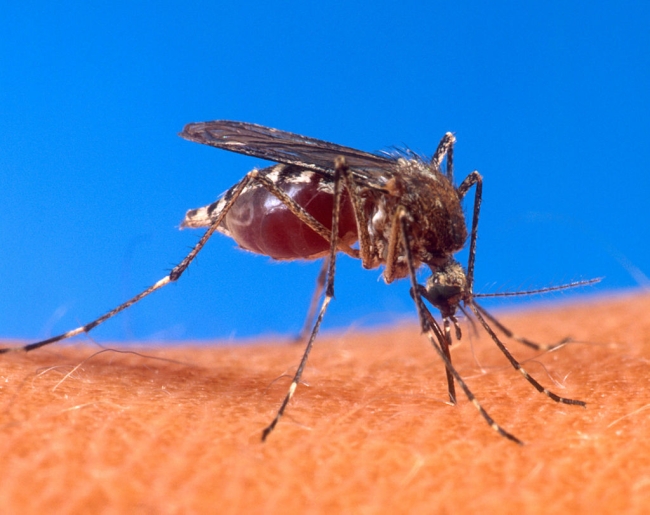You have /5 articles left.
Sign up for a free account or log in.

Wikimedia Commons
The return to campus this academic year was accompanied by a new challenge: Zika.
Zika has been detected 3,358 times in the United States since the first reported case of sexual transmission in February, according to most recent numbers from the Centers for Disease Control and Prevention. The symptoms and impact are generally mild, unless the person infected is a pregnant woman or a woman who becomes pregnant subsequently. Fetuses whose mothers have been diagnosed with Zika -- even well after exposure -- are at risk of being born with abnormally small heads and brain defects.
The majority of Zika diagnoses in the U.S. have been travel related -- people who entered the U.S. after visiting Central or South America, bringing Zika along with them. But some were transmitted through sexual activity, and others through local mosquito bites.
About 700 people have been diagnosed with Zika in Florida, and all 43 cases where someone contracted Zika by mosquito bite in the United States occurred in Florida. And the epicenter of those Zika-infected mosquitoes has been Miami, home to multiple universities and nearly 350,000 people aged 15 to 24, according to a 2014 survey from the U.S. Census Bureau.
College and universities such as the University of Miami and Florida International University have been beefing up efforts to educate students about the Zika virus and establish prevention efforts on campuses.
“Immediately after it was discovered that we had several cases of Zika in our county, we convened a committee at the charge of the president,” said Eneida Roldan, chief executive officer of FIU Student Health.
The committee was created in July, and after a quick turnaround, it launched an “aggressive and comprehensive marketing campaign,” Dr. Roldan said, to teach students how to protect themselves from Zika. The university added facts and tips to its website; put up informational signs all over campus; identified, eliminated or treated standing water where mosquitoes are most likely to breed and where their eggs can last days; and provided condoms to students to protect against sexual transmission, among other precautions.
The University of Miami is taking a similar approach. At the beginning of the school year, administrators provided 6,000 bottles of mosquito repellent to students. The university also dealt with the issue raised by standing water -- draining water where it could and treating the rest -- but unlike FIU, the university also sprayed targeted areas on campus with insecticide.
In addition, earlier this month, the university hosted a panel discussion for students, faculty and staff members, as well as public officials and Miami residents.
“We’re not only educating students, but we’re also working to educate the Miami community,” said Jacqueline Menendez, the university's vice president for communications.
When it comes to Zika prevention, education is vital, according to Tim Moody of the American College Health Association.
The sentiment of college students -- how apathetic or concerned they are in response to Zika -- is difficult to measure. Julie Harans, editor of The Miami Hurricane, the University of Miami’s student newspaper, hasn’t detected panic at her school. As far as she knows, nobody's hiding from the outdoors or wearing long sleeves in the hot Florida sun.
“There was more hype around it over the summer. Students from the Northeast were especially concerned about coming back over the fall semester,” Harans said. But since students have returned, “the consensus has been, ‘I’m not planning on getting pregnant, so it doesn’t matter to me.’”
Since many students may not be paying attention to Zika, Moody said, it’s important for colleges and universities to take a proactive approach: teach students about the virus and have a Zika response plan in place. Moody suggests using the CDC’s Zika Interim Response Plan as a guideline.
Beyond Miami
Miami may be ground zero for U.S. Zika transmissions, but that doesn’t mean cases of Zika have been isolated there. Two college students diagnosed with the virus attend the University of Florida, more than 300 miles north of Miami.
One student was living on campus and the other off campus, said Bill Properzio, director of environmental health and safety at Florida. Both received instruction from the Student Health Center on how to avoid spreading Zika, such as wearing long sleeves and covering themselves in repellent to keep mosquitoes from biting them and then infecting others.
Although the university is far from Miami, it too is getting rid of standing water and adding larvicide to water that can’t be drained. The university also has a website that lists student resources and Zika prevention tips.
But it’s not enough for universities in Florida to establish Zika prevention efforts, Moody said. Colleges all over the U.S. should invest in educating their students, too.
Along the Gulf Coast, officials at Tulane University in New Orleans are aware that their climate makes their location a potential breeding ground for mosquitoes.
In fact, Scott Tims, assistant vice president for Campus Health at Tulane, began receiving phone calls from concerned parents in early spring. The prevention efforts kicked into full gear over the summer: facilities management identified and either drained or treated standing water, and the campus was sprayed a few times over the summer.
Even at the University of Maryland at College Park, far from the Gulf Coast, the University Health Center sent an email to students in early September offering facts about the virus and prevention tips.
Because nearly all Zika diagnoses in the United States were contracted through travel, a crucial step in Zika prevention must be consulting students who visit or study abroad in South and Central America, Moody said.
That’s a large piece of Zika prevention efforts at the University of Texas at Austin, where students traveling to high-risk areas are advised both before and after their trips.
“Say students went to the Olympics this summer and were infected with the virus. We give them a consultation when they return,” said Susan Hochman, assistant director of the University Health Services at UT. “We want to make sure students know how to protect themselves from mosquito bites, as well as how to protect their sexual partners.”
Finally, researchers are constantly learning more about Zika, which means that information about how best to prevent its spread is changing often, Moody said. The best way for universities to keep informed: check the CDC website on Zika regularly.








